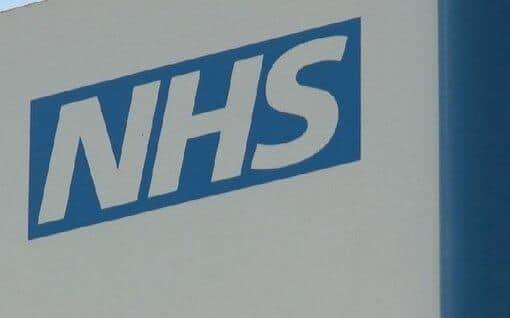Major shake-up of NHS operation in Lancaster and Morecambe
and live on Freeview channel 276
The Morecambe Bay Clinical Commissioning Group (CCG) had overseen the provision of both pre-planned and urgent and emergency care - as well as community health, mental health and maternity services - since it was established in April 2013. It has also had a role in commissioning GP - or primary care - services.
Under government legislation introduced earlier this year, the organisation has ceased to exist and its functions, along with those of its seven counterparts elsewhere in Lancashire, have been transferred to a new statutory organisation which will discharge the former CCG role at a much broader, county-wide level - although there will be no change to how patients access frontline health services as part of the switch.
Advertisement
Hide AdAdvertisement
Hide AdNationally, CCGs have controlled about 60 percent of the NHS budget since their inception.


NHS Lancashire and South Cumbria has today assumed responsibility for healthcare spending and the day-to-day running of the health service across that wider region. It will be one of 42 integrated care boards (ICBs) established nationwide.
Alongside Lancashire and South Cumbria’s ICB will be an integrated care partnership (ICP), which will see a range of relevant organisations sitting together as part of a committee designed to deliver more joined-up and coherent health and care services for what will be a population of 1.8 million people - as opposed to the 395,000 served by Central Lancashire’s CCGs.
The new, formal partnership will include local authorities, voluntary, community, faith and social enterprise organisations and independent healthcare providers. Lancashire and South Cumbria was one of the first parts of the country to move towards an integrated care model almost five years ago and has operated a board which has overseen collaboration work in the area to date.
NEW ORDER
Advertisement
Hide AdAdvertisement
Hide AdAlthough the new Lancashire and South Cumbria integrated care board will serve a vast and disparate area compared to the clinical commissioning groups it replaces, health thinktank The King's Fund says that a key premise of the reforms is that much of the work to join up health and social care and improve population health will be undertaken at a more local level.
This will involve areas known as "places" - perhaps akin to the footprints served by a hospital - and also even smaller geographies called "neighbourhoods". The thinktank says that the legislation underpinning the changes gives local leaders "flexibility" in terms of any arrangements they introduce.
Lancashire and South Cumbria's ICB recuited Kevin Lavery as its chief executive - at the time, in a designate capacity - late last year. Mr Lavery has previously been the chief executive officer for the City of Newcastle-upon-Tyne, Cornwall Council and the City of Wellington in New Zealand.
The ICB will be chaired by David Flory, while Dr. David Levy - previously a regional medical director for NHS England - will be the organisation’s chief medical officer.